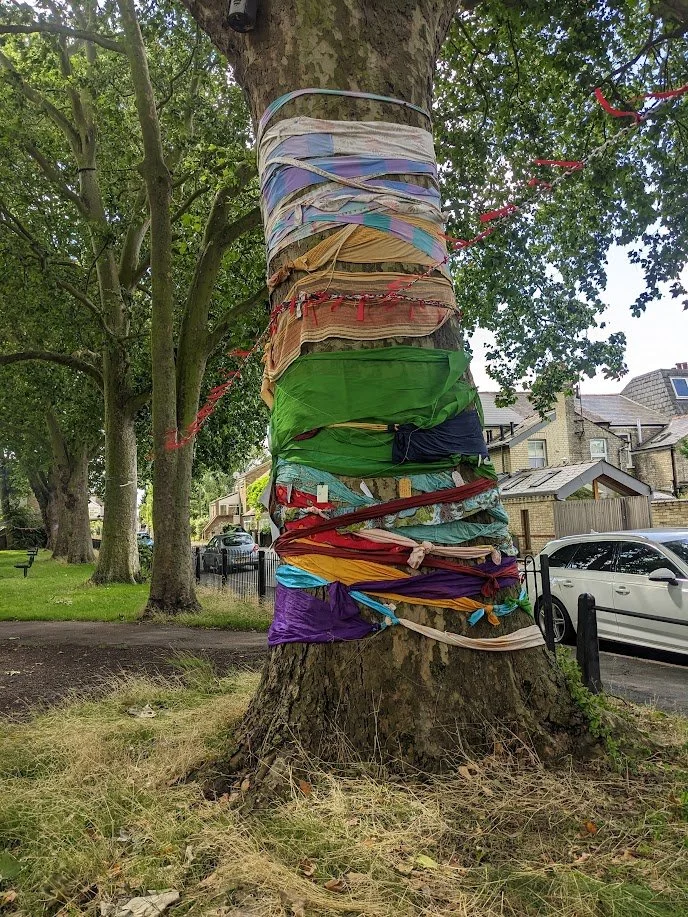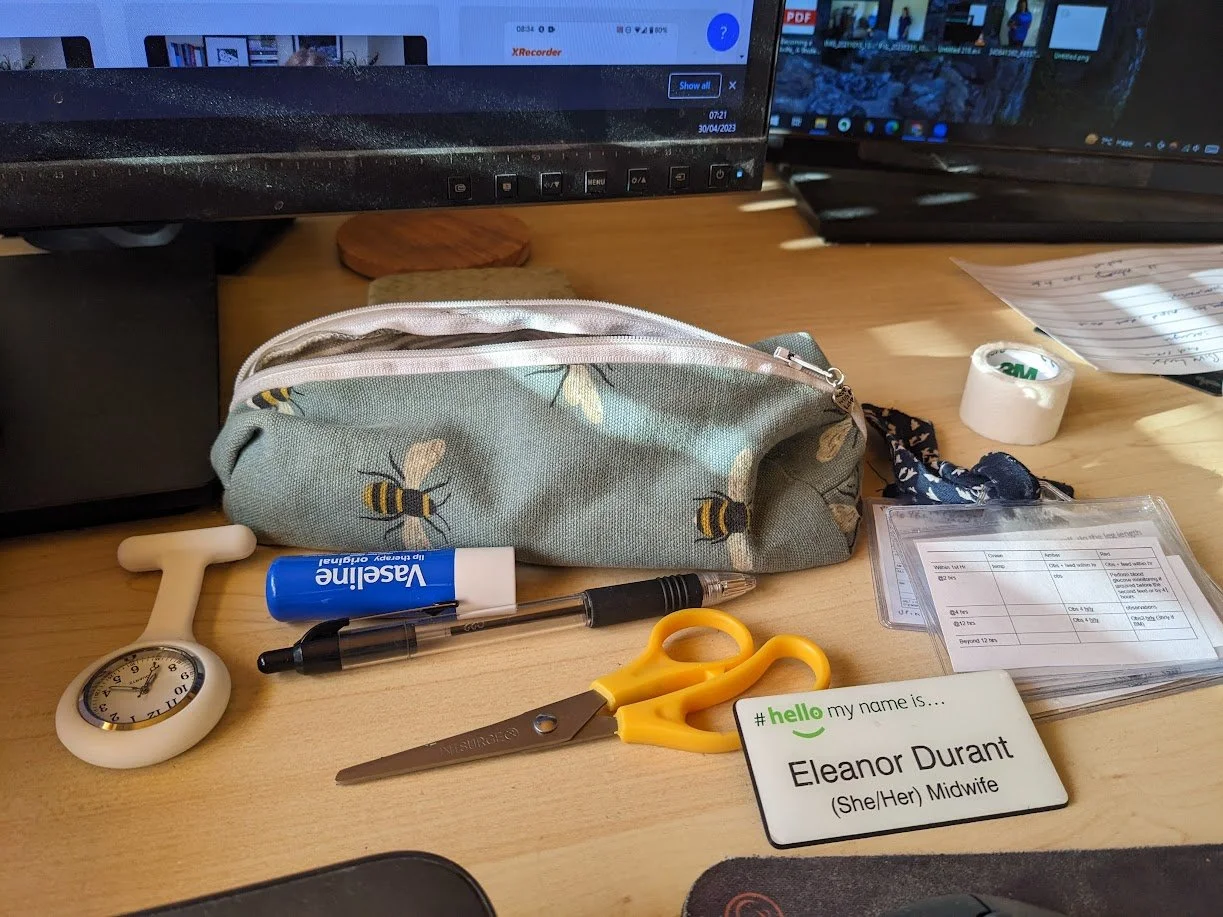Refinding Your Midwifery Spark
Figure Out Your Philosophy as an NHS Midwife
The Truth is More Complicated Than ‘The System is Broken’
I’m a midwife who for a long time could not figure out a philosophy that fit my experience of working in the NHS. Over the years, I’ve heard things like ‘the NHS is amazing, we should all appreciate it’ (often said with a positive edge, implying that every client should feel grateful for what they get) or ‘the system is broken’ (with the implication that it's beyond repair and the NHS can never get it right). But to me, the truth is so much more complicated than either of these descriptions.
Why do I Continue to be an NHS midwife?
I’ve been chasing after a way of describing why I’m so attached to midwifery as a profession and why I choose to practice as an NHS midwife. But the reasons for my professional choices have, until recently, felt hard to describe.
I have recently come across a phrase which describes where I’m at. I was tipped off to it by Simon. Simon is a psychotherapist from whom I get clinical supervision for my midwifery business. Clinical supervision is something you’re supposed to have if you use your feelings to navigate your career. I do this, and I also write about them and share them, so it’s essential I get someone else to check in and make sure I’m not about to do something stupid. Simon has a little beard and glasses and a nice selection of cardigans. He has a smallholding and has recently upgraded his yurt, where he used to see clients, to a stand-alone garden office. He does a lot of long silences. I used to find him reasonably intimidating.
I often discuss birth with Simon, and that’s a little odd. It’s weird to talk about female bodies with him. No shade to males in general here, I love a male midwife - it’s just I assume he has has very little personal experience of birth. I used to wonder why I didn’t go for a less cliched psychotherapist. My basic answer is he came recommended by a friend and I’ve stuck with him because I was excited to find he understands the power of physiological childbearing very clearly. He also doesn’t back away from hard conversation about race, gender and sexuality. And he makes me feel sane because everything I believe about the birth world he’s come to as well, despite the fact he is from a completely different professional background. So even though I feel I may be letting the side down by getting supervised by a middle-class white guy, I keep going back. It’s a kind of triangulation.
Simon poked around in my head and some themes kept emerging. We kept discussing situations with many moving parts and shades of grey. He kept bringing up a famous local psychotherapist called Peter Lomas. Turns out Lomas used to be a GP and did a stint in obstetrics and he often talked about how much he liked midwifery as a model of care. Lomas saw psychotherapy as a form of mothering. He focussed on postnatal depression in his psychotherapy for a while. Turns out psychotherapy is often on the same page as midwifery.
Expertise is No Excuse for a Lack of Empathy
This Lomas guy is worth looking into. He was anti-institutional in the same way the best midwives are. He kept leaving the big organisations like the British Psychoanalytical Society and the Institute of Psychoanalysis and setting up anti-hierarchical ways of training instead. To him, research and technique were useful but much more important was the ordinary goodness of professionals on the ground. It was about valuing expertise but not being over-awed by it, and certainly not letting ability be an excuse for a lack of empathy.
Simon taught me that I need a way to cut through the confusion and insecurity I have about the NHS and a platform to do some deep thinking. Because I have real fears about what would happen if we took the NHS away. There are no guarantees of what would replace it. And so I have to stay with the clients and the staff working in this model, because stepping away from it would ultimately mean abandoning mainstream care and if everyone who thinks independently does that, we would fall into a much worse position than we are right now. And also, I don’t believe we’re getting everything in the NHS wrong. Babies and bathwater and all that. I want a way to stay with the complexity of it all.
Peter Lomas’ philosophy was called ‘committed uncertainty’.
Committed Uncertainty
This idea has given me space to think while not neglecting my goals or priorities. It means seeing everything the NHS achieves: the buildings, the training, the resources, the compassion, the 24/7 care for everyone free at the point of care. But it also understands what needs to change, including the inequity, lack of investment and the impact of our country’s choices on staff and clients. It has depth.
It’s a philosophy that I find simultaneously intellectually stimulating, morally correct, and deeply comforting. When I face a difficult situation, I no longer try to solve it like a Rubix cube. Instead, it feels appropriate to engage with the problem in many different ways, from many different angles, until I come to something that seems of use. I am no longer someone who is working in a broken system. Because agreeing that it’s broken means giving up. This is a balm to my body and brain. And a recent diagnosis of a curable but still nasty neural disease has given me no option but to try and engage with midwifery and life more calmly.
It Impacts Your Whole Life
The best way to explain committed uncertainty is to describe how it plays out. Over the next 15 days we will explore what committed uncertainty means to me as a midwife. I’ll walk you through my experiences, which include reflections from practice, but also lots of other places like my relationships, books and TV. After all, midwifery is not just a job, it’s an identity that impacts my whole life, and practice is just one part of where I get my knowledge and experience.
I hope that from this, you will see if what I do fits your own philosophy. You’re free to adopt it as your own. Or if it doesn’t work for you, it’ll help you find your own way, and figure out what being an NHS midwife means to you.
CLICK BELOW TO SIGN UP FOR THE 15 DAY SERIES ON REFINDING YOUR MIDWIFERY SPARK




